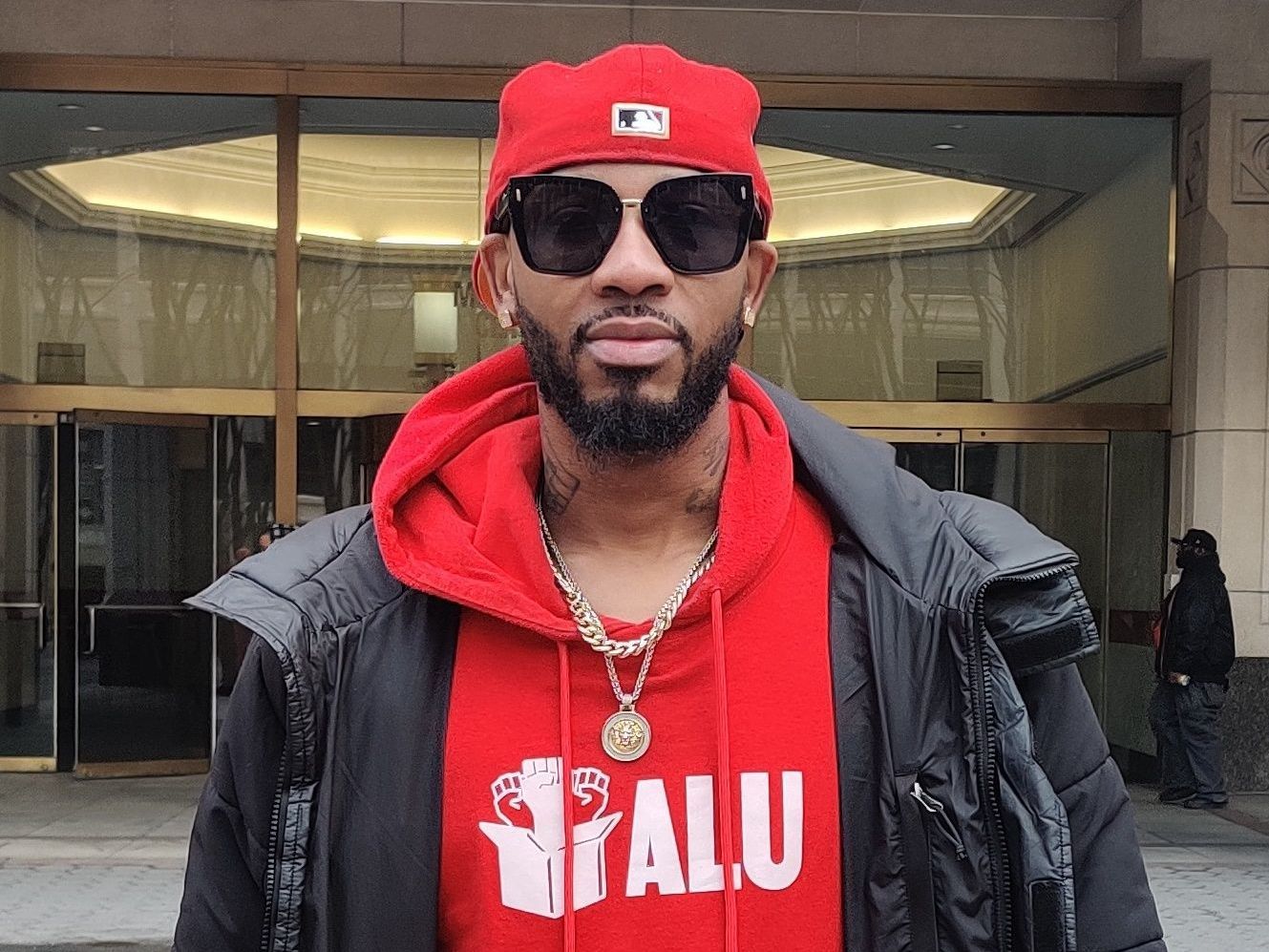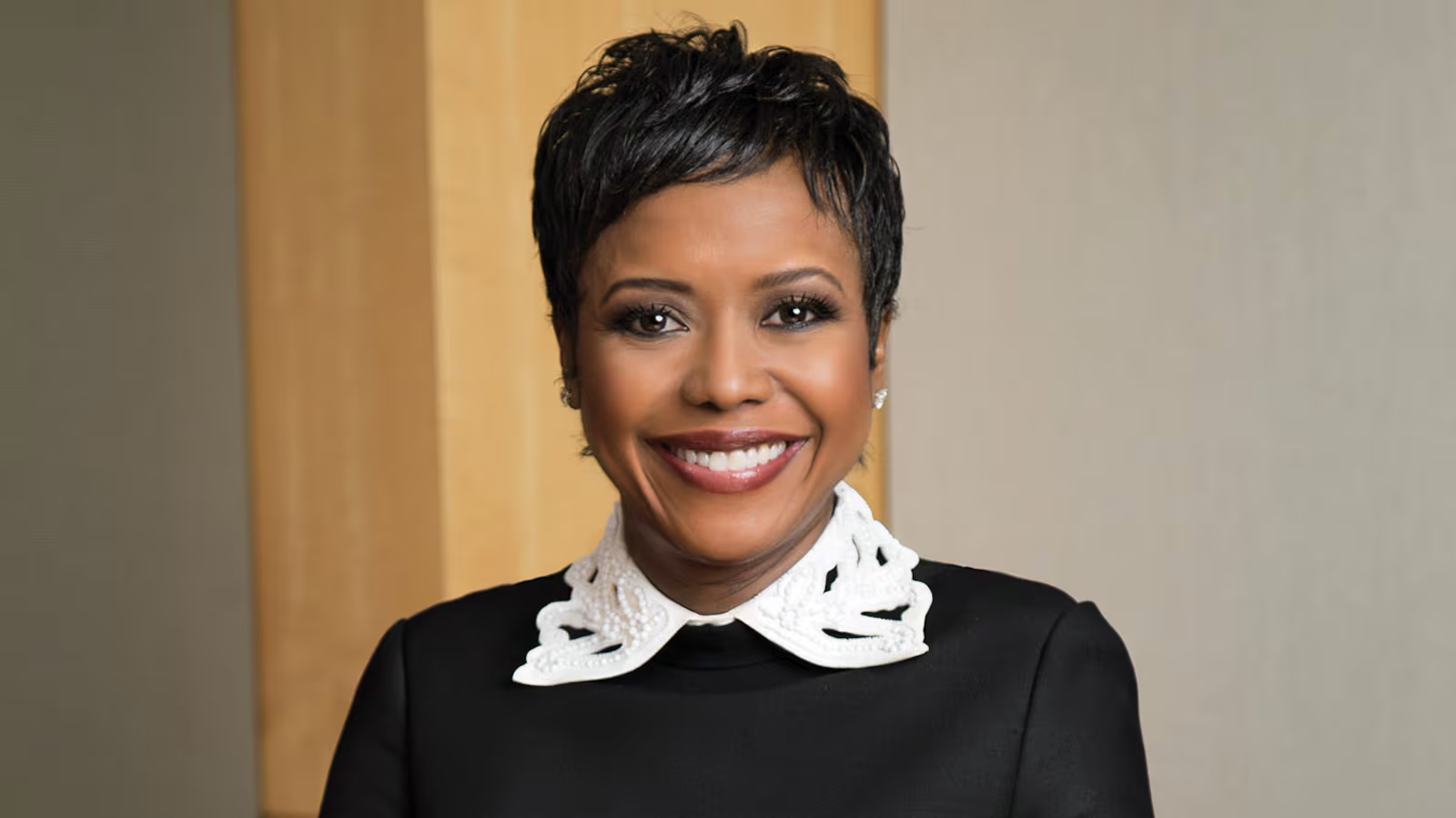7 Lessons We're Learning About Money and Life from Ariel Investments' Mellody Hobson
Kim Anthony • October 14, 2022
When Mellody Hobson speaks about money, people listen—and for good reason. As a nationally respected financial expert, co-CEO of Ariel Investments, and longtime advocate for financial literacy, Hobson has a gift for breaking down complex money matters into everyday truths that stick. Through her powerful insights and plain-spoken wisdom, she’s taught millions how to not only manage money but master it. Whether she’s speaking on “Mellody on Money” or in the boardroom, her advice is honest, empowering, and deeply practical—especially for those who’ve been left out of traditional wealth-building conversations. Here are 10 priceless facts about money we’re learning from the incomparable Mellody Hobson—truths that can shift your mindset, change your habits, and put you on the path to lasting financial freedom.
1. Know Where Every Dollar Goes
- Track your spending like your life depends on it—because your financial freedom does.
- Use budgeting apps (like Mint, YNAB, or even spreadsheets).
- Categorize every purchase to see where you’re bleeding money (subscriptions, eating out, etc.).
2. Your Net Worth Matters More Than Your Paycheck
- It’s not what you earn, it’s what you keep—and grow.
- Subtract your liabilities (debt) from your assets (what you own).
- Regularly calculate your net worth so you know if you’re building wealth or just staying busy.
3. Stop Using Credit Like It’s Cash
Credit cards are tools, not free money.
- If you can’t pay it off in full monthly, don’t swipe it.
- Limit credit card use to what you can pay off within 30 days.
📉 4. Avoid “Financial Amnesia”
Tip: Don’t forget big money lessons after things get comfortable again.
- Keep a money journal. Reflect on past financial mistakes and what you learned.
- Set automatic savings even during stable times to build resilience.
💡 5. Financial Literacy = Financial Power
Tip: The more you learn, the more you earn—and protect.
- Read books, listen to podcasts, and follow reputable financial voices.
- Take free online courses (Khan Academy, Coursera, etc.) on personal finance and investing.
🧠 6. Money Is Emotional—But Don’t Let It Run You
Tip: Be honest about your emotional triggers around money.
- Ask yourself: Do I spend to feel better? Do I avoid looking at my bank account out of fear?
- Practice mindful money habits and check in weekly.
📈 7. Start Investing Early, Even If It’s Small
Tip: Time in the market beats timing the market.
- Open a Roth IRA, 401(k), or use apps like Acorns or Betterment to start small.
- Automate contributions and increase them as your income grows.
🔐 8. Protect Your Future with Insurance & Estate Planning
Tip: Wealth isn’t just what you grow—it's what you protect.
- Get life, health, and disability insurance.
- Create a will and healthcare directive, especially if you have children.
🤝 9. Talk About Money
Tip: Silence keeps communities broke. Conversation creates change.
- Break money taboos with family and friends.
- Teach your kids about money early—they’re watching you.
✨ 10. Your Money Story Can Be Rewritten
Tip: No matter where you started, you can change your financial destiny.
- Don’t let past mistakes define your future.
- Make a new decision today that your future self will thank you for.

The prospect of running for public office is both exciting and daunting. It offers an opportunity to make impactful changes, but it also exposes you to scrutiny and requires tremendous commitment. If you're contemplating throwing your hat into the political ring, it's essential to think through multiple factors before making your decision. Here are eight critical considerations to mull over: 1. Personal Readiness Entering politics is a life-altering choice, not just for you but also for your family and close ones. The demands on your time, privacy, and emotional well-being can be overwhelming. Questions to Ask : Are you emotionally, mentally, and physically prepared for the challenges? Have you discussed this with your family, and are they supportive? 2. Core Beliefs and Values Politics is an arena of competing interests and ideologies. Having a clear understanding of your core beliefs and values will guide your political journey. Questions to Ask : What causes or issues are most important to you? Are your views aligned with the electorate you wish to serve? 3. Skill Set and Qualifications Being in public office requires a diverse skill set, including but not limited to leadership, public speaking, and policy analysis. Questions to Ask : Do you possess the skills needed to succeed in office? If not, are you willing to learn or surround yourself with experts who do? 4. Financial Considerations Campaigning can be expensive, and public office may not offer the financial rewards that other careers do. Questions to Ask : Do you have the financial resources to run a campaign and sustain yourself in office? Are you ready to disclose your financial status, as is often required? 5. Electability and Public Perception Popularity and public perception play a crucial role in politics. Your history, conduct, and even appearance are often subject to public scrutiny. Questions to Ask : How are you perceived by the community? Do you have any skeletons in the closet that could become public and harm your candidacy? 6. Team and Support System A successful campaign requires a dedicated team for various functions: strategizing, fundraising, public relations, and more. Questions to Ask : Do you have a trustworthy team or know how to assemble one? Do you have mentors or advisors in the political arena? 7. Regulatory and Legal Requirements Different positions have different eligibility criteria, filing requirements, and regulations. Questions to Ask : Are you familiar with the legal requirements for the position you are considering? Do you meet the eligibility criteria? 8. Long-Term Goals and Exit Strategy Public office is often not a lifetime appointment. Whether you serve one term or multiple, you will eventually move on. Questions to Ask : What are your long-term goals? Do you see politics as a career or a stepping stone to other endeavors? What's your exit strategy? The Starting Point, Not the Destination Contemplating these eight points is just the starting point; running for public office is a long, complicated journey that will demand constant adjustment and reevaluation. However, these considerations can give you a solid foundation for making an informed decision. Running for public office is a significant decision that should not be taken lightly. If you are considering this path, taking the time to reflect on these eight considerations will provide valuable insights and prepare you for the challenges and rewards that lie ahead.

Chris Smalls has emerged as an unlikely hero, not just for the workers of Amazon but for the labor movement across America and beyond. He has become the President of the Amazon Labor Union, catalyzing significant shifts in a company known for its tough anti-union stance. His rise from a rank-and-file worker to a labor organizer has lessons in leadership that transcend industrial contexts and have universal applicability. 1. Embrace the Unexpected Chris’s journey began when he unexpectedly walked out of Amazon three years ago. His decision, driven by a deep-rooted sense of justice, has today turned him into a symbol of hope for many. Leaders often need to embrace the unexpected and leverage it for positive change. 2. Prioritize the Immediate Task Despite the allure of media attention and numerous emails, Chris has remained focused on getting a contract for JFK workers. Leaders should always keep their eyes on the immediate goal, ensuring it aligns with the broader mission. 3. Share the Reality Chris paints a vivid picture of the demanding work environment at Amazon. By sharing his personal experience, he humanizes the struggle and educates the masses on the realities many face. Great leaders tell stories that connect and mobilize. 4. Find Inspiration from Setbacks The failed unionization attempt in Bessemer, Alabama, became a source of inspiration for Chris. Leaders often encounter setbacks; the key is to learn from them and use them as fuel to keep going. 5. Build Solidarity Beyond Borders Chris's commitment isn't limited to America. He has connected with workers from London to Cuba, demonstrating the universality of the labor struggle. Leaders must think globally, fostering international collaborations and solidarity. 6. Stay Motivated While challenges abound, Chris is driven by the possibility of causing billionaires to rethink their decisions. He's inspired by stories of grassroots movements and international solidarity. Leaders must find their unique source of motivation to persist. 7. Learn Continuously From understanding the deep divides in organizational alignments to the intricacies of American labor politics, Chris's journey is one of continuous learning. Effective leaders are always students, open to gaining new insights and understanding. 8. Foster International Solidarity Chris's efforts have sparked interest from other organizations and countries. By fostering international collaboration, leaders can amplify their cause and create a more substantial impact. 9. Celebrate Victories but Look Ahead The Amazon Labor Union's election win was monumental, but Chris understands that it's the beginning. Leaders should celebrate victories but must always focus on the next milestone. 10. Hold Entities Accountable Whether it's Amazon or established unions, Chris stresses the importance of accountability. Leaders must consistently challenge existing systems, pushing them towards greater fairness and justice. In conclusion, Chris Smalls's leadership journey is an inspiration to many. His commitment, resilience, and vision offer lessons not just for labor organizers but for leaders across sectors. As the labor landscape continues to evolve, it's voices like Chris's that will guide the way, urging us all to build a more equitable and just world.

Entrepreneurship is a journey paved with challenges, risks, and opportunities. In the world of business, there are few voices as authoritative and inspiring as Daymond John's. As a successful entrepreneur, investor, and star of the hit TV show "Shark Tank," Daymond John has shared his wisdom and insights that have become valuable lessons for aspiring and seasoned entrepreneurs alike. Here are eight lessons we've learned from Daymond John about entrepreneurship: 1. Start Small, Think Big Daymond's journey began with a modest investment of $40, sewing homemade hats in his mother's living room. This humble start taught him the importance of taking the first step, even when resources are limited. He emphasizes the need to think big but start small, leveraging what you have to make gradual progress toward your goals. 2. Solve Real Problems One of Daymond's key principles is to identify problems that need solving. Successful businesses often emerge from addressing genuine pain points faced by consumers. By focusing on solutions that add value to people's lives, entrepreneurs can tap into sustainable demand and build a loyal customer base. 3. The Power of Branding Daymond is a firm believer in the power of branding. He turned FUBU (For Us, By Us) into a global fashion brand by connecting with the hip-hop community and championing inclusivity. His lesson? Build a brand that tells a story and resonates with your target audience. A strong brand creates emotional connections and sets you apart in a competitive market. 4. Embrace Failure as a Learning Opportunity Failure is often seen as a setback, but Daymond sees it as a stepping stone to success. He acknowledges his past failures and emphasizes that learning from mistakes is crucial for growth. Every failure provides valuable lessons that can guide future decisions and strategies. 5. Stay Hungry and Persistent Daymond's journey to success was far from smooth, marked by rejections and obstacles. His story teaches us the importance of perseverance and hunger. Entrepreneurship requires a relentless drive to overcome challenges, adapt to change, and keep pushing forward, even when the odds seem stacked against you. 6. Know Your Numbers Inside and Out Numbers are the language of business, and Daymond stresses the significance of understanding your financials. Whether it's profit margins, costs, or revenue projections, a deep understanding of your financial metrics empowers you to make informed decisions and negotiate effectively. 7. Build Relationships and Networks In the business world, relationships matter. Daymond's success was shaped by his ability to build strong connections with mentors, partners, and customers. He advises entrepreneurs to network, seek mentorship, and nurture relationships as they can provide valuable guidance, opportunities, and support. Daymond John's journey from a small start to a globally recognized entrepreneur is a testament to his expertise and insights into the world of business. These eight lessons serve as a roadmap for aspiring entrepreneurs, guiding them through the challenges and triumphs of building and growing a successful enterprise. By embracing these principles, entrepreneurs can navigate their own paths to success with confidence and determination.




